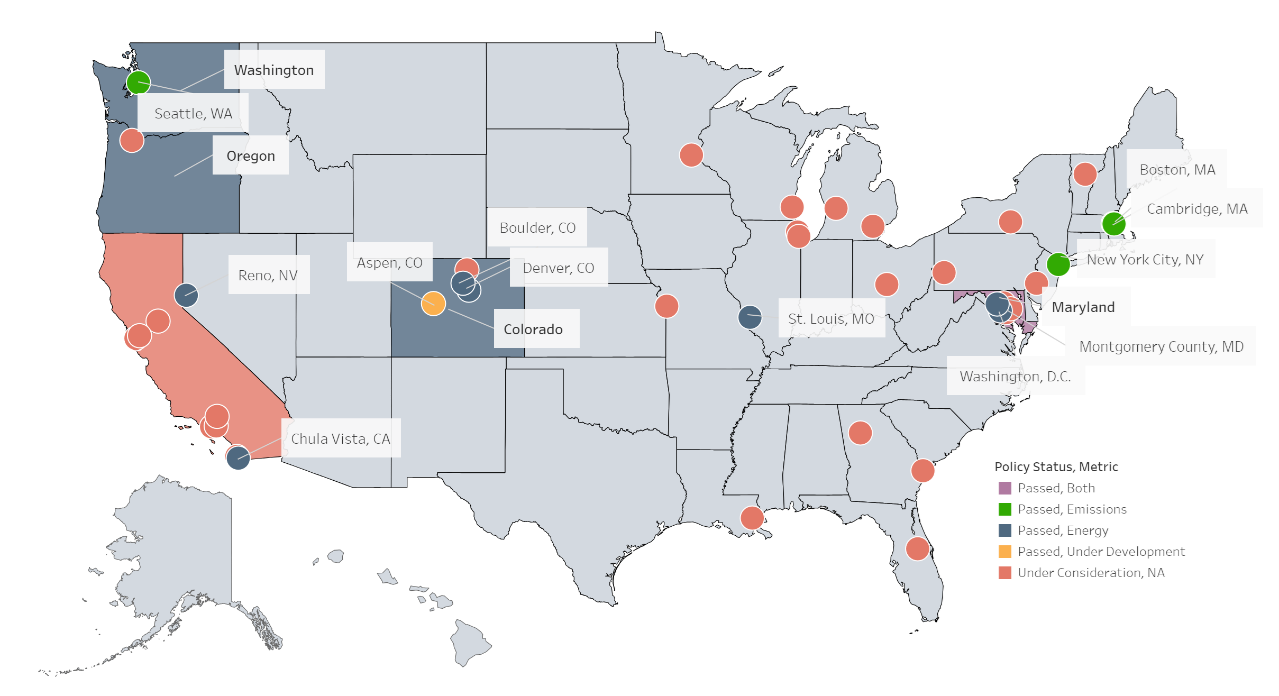Building Performance Standards: Can your building pass the test?
May 30, 2024
Building construction is regulated at the state and local level to ensure it meets certain requirements for safety and accessibility. In many jurisdictions, there are also energy codes that define the minimum performance ratings for equipment and systems that can be installed. However, if energy codes’ true goal is to reduce the use of energy, equipment choices must be coupled with parameters around systems operations.
Energy Codes for Existing Buildings
More recently, several municipalities implemented Building Performance Standards (BPS) legislation. Think of this as an energy code for existing buildings. Often, the legislation requires building owners to report their energy use to the regulatory authorities. Enforcement can include fines, although many initial efforts are meant to build awareness.
A map of BPS efforts in 2024 is shown below:

Source: energycodes.gopv/bps
BPS laws are phasing in, with larger buildings often the initial focus. In many cases, there are progressive increases in operating performance requirements. For some, the goal is to eventually achieve a state of “net zero,” where a combination of efficient system choices and on-site generation offset the power drawn from the grid.
Benchmarking Resources
What should building owners in these jurisdictions do? The first step is to understand how your building performs relative to its peers. In many cases, BPS laws are paired with a “benchmarking” resource—a website where owners can enter their utility bill information and get an idea of how they stack up. One such program, Minnesota B3 Benchmarking, is available for public access. Another option is the Energy Star® Portfolio Manager®, although it includes limited types of comparison buildings.
Even if you don’t have impending BPS regulations to comply with, benchmarking can be an effective way to prioritize where to invest if you have several similar properties that you want to compare.
Set Your BMS Compliance Strategy
EMC can help you set a strategy to comply with BPS regulations. We work with owners of large portfolios to prioritize where to start and how to achieve the required performance as cost-effectively as possible. Our dedicated staff of experts can provide insights into the latest standards and how they may impact you.
Kris Leaf is EMC's Senior Manager of Customer Incentives. He has developed and managed energy efficiency incentive programs for numerous utilities including Xcel Energy, ComEd and MidAmerican Energy. Kris has a degree in Mechanical Engineering from the University of Minnesota and is pursuing a master’s degree in Sustainable Business from the University of Wisconsin-Madison.


